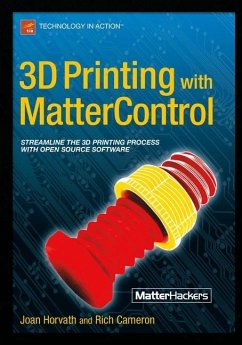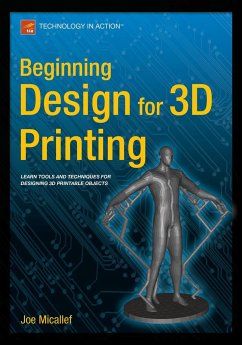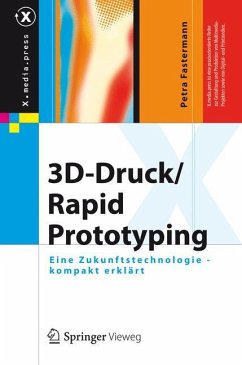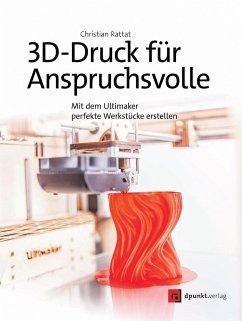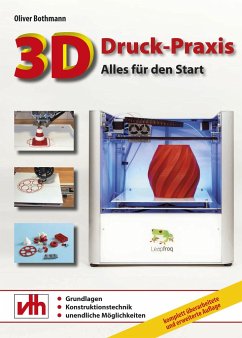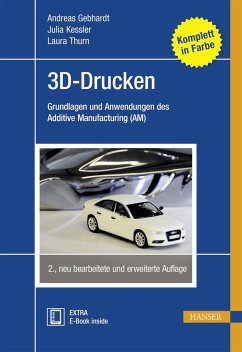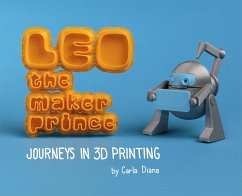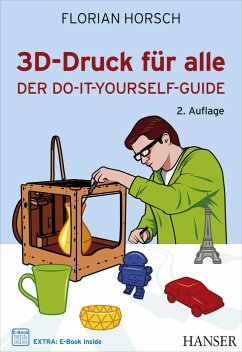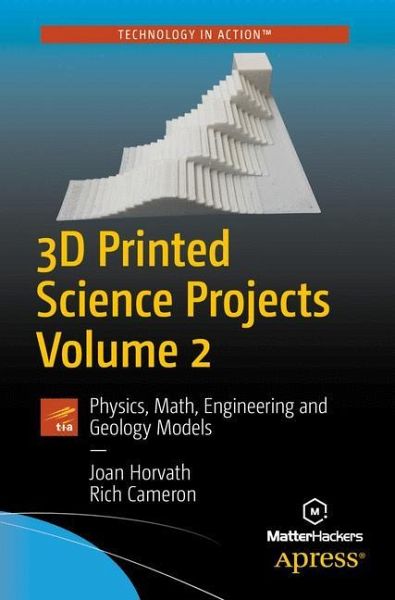
3D Printed Science Projects Volume 2
Physics, Math, Engineering and Geology Models

PAYBACK Punkte
12 °P sammeln!
Learn physics, engineering, and geology concepts usually seen in high school and college in an easy, accessible style.This second volume addresses these topics for advanced science fair participants or those who just like reading about and understanding science. 3D Printed Science Project Volume 2 describes eight open-source 3D printable models, as well as creative activities using the resulting 3D printed pieces. The files are designed to print as easily as possible, and the authors give tips for printing them on open source printers.As 3D printers become more and more common and affordable, ...
Learn physics, engineering, and geology concepts usually seen in high school and college in an easy, accessible style.
This second volume addresses these topics for advanced science fair participants or those who just like reading about and understanding science. 3D Printed Science Project Volume 2 describes eight open-source 3D printable models, as well as creative activities using the resulting 3D printed pieces. The files are designed to print as easily as possible, and the authors give tips for printing them on open source printers.
As 3D printers become more and more common and affordable, hobbyists, teachers, parents, and students stall out once they've printed some toys and a few household items. To get beyond this, most people benefit from a "starter set" of objects as a beginning point in their explorations, partially just to see what is possible. This book tells you the solid science stories that these models offer, andprovides them in open-source repositories.
What You Will LearnCreate (and present the science behind) 3D printed models
Review innovative ideas for tactile ways to learn concepts in engineering, geology and physics
Learn what makes a models easy or hard to 3D print
Who This Book Is For
The technology- squeamish teacher and parents who want their kids to learn something from their 3D printer but don't know how, as well as high schoolers and undergraduates.
This second volume addresses these topics for advanced science fair participants or those who just like reading about and understanding science. 3D Printed Science Project Volume 2 describes eight open-source 3D printable models, as well as creative activities using the resulting 3D printed pieces. The files are designed to print as easily as possible, and the authors give tips for printing them on open source printers.
As 3D printers become more and more common and affordable, hobbyists, teachers, parents, and students stall out once they've printed some toys and a few household items. To get beyond this, most people benefit from a "starter set" of objects as a beginning point in their explorations, partially just to see what is possible. This book tells you the solid science stories that these models offer, andprovides them in open-source repositories.
What You Will LearnCreate (and present the science behind) 3D printed models
Review innovative ideas for tactile ways to learn concepts in engineering, geology and physics
Learn what makes a models easy or hard to 3D print
Who This Book Is For
The technology- squeamish teacher and parents who want their kids to learn something from their 3D printer but don't know how, as well as high schoolers and undergraduates.



